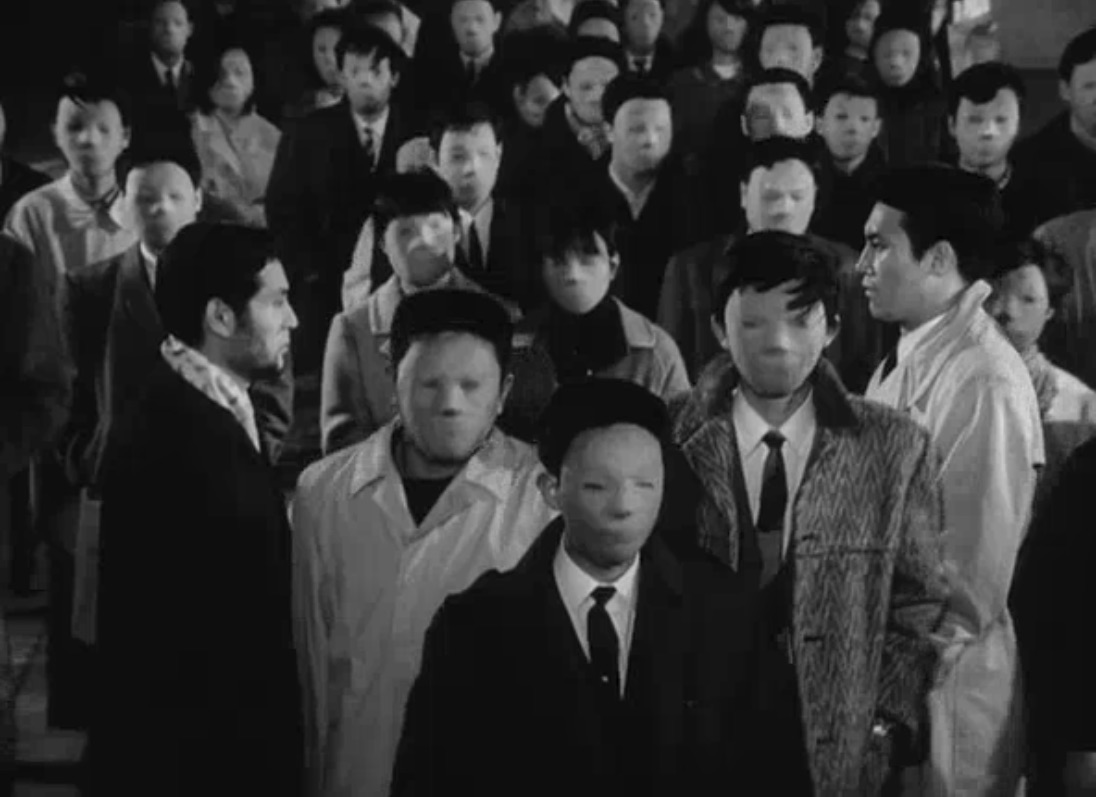Nicole~
The Face of Another by Kōbō Abe

The world of The Face of Another is the world of Japan in the 1960s observed through Abe's highly tuned microscope; a world layered in paranoia, in which fast growing technology when not regulated, might create a terrifying nightmarish forecast of the future. Abe explores the foreign - the unknown within man, moving his protagonist in deceptive scenarios, observing his relationship with others, peeling away his external perceptions, to expose the layers within.
A scientist's facial vulgarization caused by a lab explosion alienates and victimizes him, spurring him to create a lifelike mask capable of human expression. In the guise of this foolproof mask, he hopes to interact with the world again without the humiliation of his scars and, more personally, to seduce his wife whom he believes has been avoiding him.
Man's soul is in his skin...I have come to observe with the greatest care the appearance of soldiers who have been wounded. And, ultimately, I have come to one conclusion. And it's a distressing one: serious exterior injuries, especially to the face, leave definite mental trauma.
Abe's precise descriptions of the fantastic creation, constructed with the realism of a technologically sophisticated lab experiment, the structure of a suspense thriller with a science fiction theme, make for very intriguing mad-scientist material. His artfulness detail the typical Japanese obsession with faces, selfhood and social roles of the time, and perhaps, more psychologically, an experiment of the theory that man validates his ego only through others. In the novel, the narrator because of his injury, experiences isolation, loneliness, a loss of self; a monstrous outcast, questioning and uncertain of the value of his life.
I can hardly believe that the face is so important to a man's existence. A man's worth should be gauged by the content of his work; possibly the convolutions of the surface of the brain have something to do with it, but his face certainly does not. If the loss of a face can cause conspicuous change in the scale of evaluation, it may well be owing to a fundamental emptiness of content.
In his altered self, no longer hidden behind the old visage, his true nature surfaces. When the play-acting scheme with his wife backfires, he becomes blindly jealous of this 'other' self, and is driven by maniacal rage as the twisted revelation unfolds.

Abe's novel brings classic sci-fi thriller components into an intricate rumination on the self, ego, otherness and the accepted ideal of what is normal. Consequentially and conceptually, what is normal or alien becomes directly under scrutiny. Abe ingeniously masks some condemning messages by inventing a scientist who suffers deforming scars distinctly similar to those of Hiroshima victims. Secondly, Abe compares the scientist's fate with Japanese-Koreans who, despite indiscernible features to their Japanese co-habitants, persistently suffered prejudice.

The Face of Another is a story of metamorphosis from normal to monstrous, a Jekyll and Hyde story, an ill state that is directly in opposition to an idyll one. Abe suggests that within the seemingly normal external self solemnly lurks the internal alien.
Is what you think to be the mask in reality your real face, or is what you think to be your real face really a mask?
 4
4



